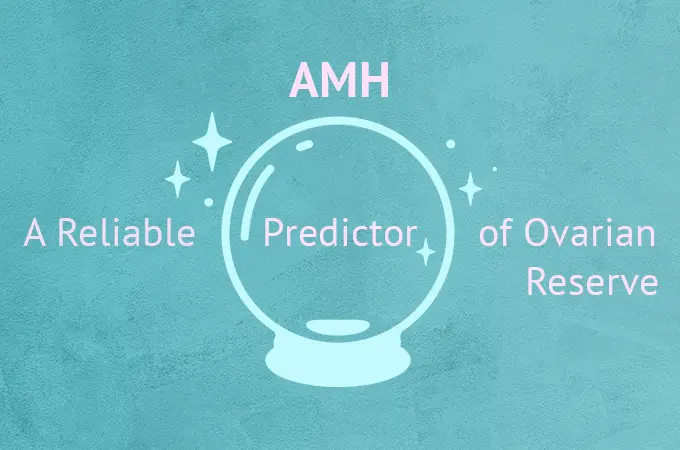Medical contribution by Joseph E. Osheroff, M.D.
Joseph E. Osheroff, M.D., is board certified in obstetrics and gynecology and reproductive endocrinology and infertility. He is member of the American Society for Reproductive Medicine, the Society for Reproductive Endocrinology and Infertility and the American College of Obstetricians and Gynecologists. Dr. Osheroff sees patients at SGF’s Columbia, Maryland office.
AMH is an early and reliable predictor of ovarian reserve and a decrease in AMH levels may indicate that there is an egg issue before FSH levels begin to rise (another test for ovarian reserve). Since AMH adds valuable information as a predictor of ovarian reserve, the testing is now part of our standard fertility evaluation for all patients at Shady Grove Fertility. When our physicians review AMH levels in conjunction with FSH, estradiol, and an antral follicle count, we are able to gain a more comprehensive evaluation of the quantity of a woman’s remaining eggs.
If you’re still under the care of your OB/GYN for fertility issues and an AMH level was not ordered as part of the initial fertility evaluation, you can request that your physician order the test or see a fertility specialist for this insightful information.
In addition to using AMH for a fertility evaluation, we also use it to determine how a patient may respond to stimulation medication when undergoing treatment, which treatments are appropriate for her specific situation, and if she is a good candidate for egg freezing.
FAQs about AMH and a woman’s fertility
How is AMH measured?
We measure AMH with a simple blood test. AMH levels are fairly constant throughout a woman’s menstrual cycle; therefore, one advantage of AMH is that a woman can undergo testing at any time during her cycle. In addition, unlike the follicle-stimulating hormone (FSH), AMH levels are fairly consistent from month to month.
Can I test my AMH if I am on a contraceptive?
In a recent study, researchers revealed that women using continuous contraceptives, regardless of type (oral contraceptive pills, skin patches, or vaginal), had significantly lower AMH levels. Based on this new study, if a patient’s AMH levels are low and she is on a contraceptive, we recommend retesting the AMH after stopping the hormones for a month.
What does my AMH level tell me about my fertility?
AMH blood levels are thought to reflect the size of the remaining egg supply; therefore, AMH is an early and reliable predictor of ovarian reserve that your reproductive endocrinologist—also known as a fertility specialist—will use to help predict how you will respond to fertility treatments and stimulation medications. As a result, your physician can recommend medical treatment that will be effective and safe.
How do the results of my AMH level impact treatment?
Your physician will use your AMH test result to gauge your anticipated response to medication. AMH is a better predictor of ovarian response than a woman’s age, body mass index (BMI), or FSH level alone. This insight has transformed the ability to individualize medication dosing and treatment plans for patients at a level that wasn’t possible before.
What medical conditions affect the level of AMH in my body?
Women with polycystic ovary syndrome (PCOS) generally have a higher number of early antral follicles resulting in higher baseline AMH level. AMH levels may be correlated to PCOS severity and have been found to be higher in women with insulin resistant PCOS. Women who are older, or who have undergone medical treatments that are toxic to the ovaries (such as chemotherapy or radiation therapy) may have a lower number of eggs remaining and therefore a lower baseline AMH level. While AMH levels do correspond to a woman’s ovarian reserve, it does not predict fertility.
Where can I have my AMH level tested?
Your primary care physician, OB/GYN, or reproductive endocrinologist can order an AMH test along with the other day 3 bloodwork for you. Due to AMH’s ability to identify a diminished ovarian reserve — better than FSH — test results can give providers information earlier regarding a potential fertility problem.
I’m interested in elective egg freezing, should I test my AMH level?
Absolutely. AMH provides valuable insight into your ovarian reserve, however other tests are important when evaluating if egg freezing is a good choice for you. In addition to the AMH level, we measure other reproductive hormone levels as well as measure your antral follicle count through a vaginal ultrasound. When combined with your age and medical history, these test results provide the most accurate insight into ovarian reserve as and ultimately your potential success with egg freezing.
We have found that the best predictor of your egg supply is through the Ovarian Assessment Report provided by ReproSource. Your egg supply score–or how many eggs you have and if that number is high or low based on your age–helps you and your Shady Grove Fertility physician determine if egg freezing now is in your best interest. The cost of your evaluation, which includes the physician consultation, is generally covered by insurance.
If you are interested in learning about your anti-Müllerian hormone levels or are currently trying to conceive, schedule an appointment or call our new patient center 877-971-7755.
Editors Note: This post was originally published in September 2015 and has been updated for accuracy and comprehensiveness as of March 2021.








